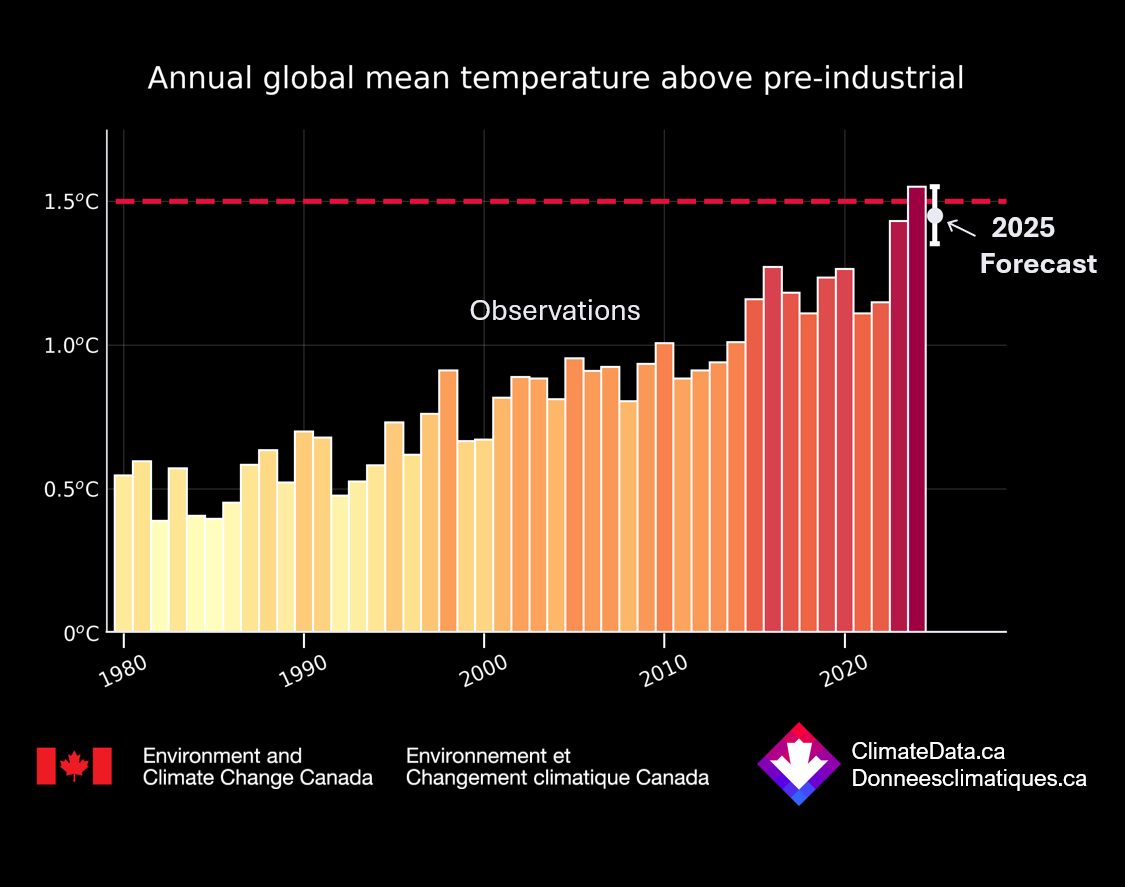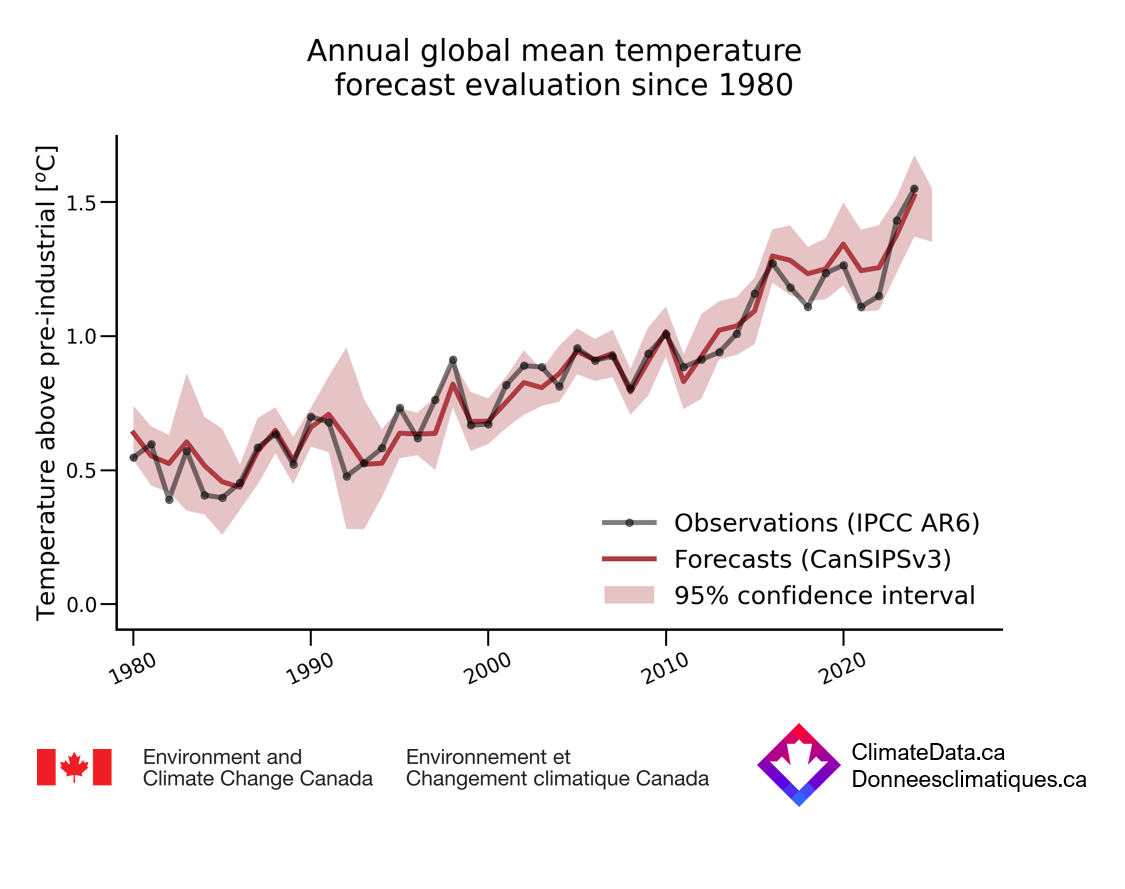Global mean temperatures are reported relative to a pre-industrial baseline. They represent the difference between the global mean temperature for a given year and the global mean temperature averaged over the 1850-1900 period, prior to most human-induced warming. The annual global mean temperature in 2025 is forecasted to be between 1.35 °C and 1.55 °C (with a central estimate of 1.45 °C) above the mean for the pre-industrial period (1850-1900). This will be the 12th consecutive year that temperatures have reached at least 1.0 °C above pre-industrial levels.
Both 2023 and 2024 were record-breaking warm years, reaching 1.43 °C and 1.55 °C above the pre-industrial period respectively. These unprecedented temperatures were driven by multiple factors, including unusually warm ocean waters and a strong El Niño event, compounded by the ongoing long-term trend of human-induced global warming. The record high temperatures in 2023 and 2024 were accompanied by heat waves across Canada attributed to climate change.
2024 was the warmest year on record, and the first year to exceed the 1.5 °C threshold established by the Paris Agreement. Exceeding this threshold in a single year does not constitute a breach of the agreement nor does it indicate that the long-term average of global mean surface temperatures has surpassed 1.5 °C. Although ECCC is forecasting only a 17% chance of exceeding the 1.5 °C threshold in 2025, their decadal forecasts indicate that the next five years are likely to be the warmest five-year period on record.

 Evaluation of forecasts of past annual global mean temperature produced by CanSIPSv3 for 1980 to 2024. The central estimates of the forecasts are shown in red, with the shaded area indicating the 95% confidence interval. The observed annual global mean temperatures from 1980 to 2024 relative to the pre-industrial mean temperature for 1850-1900 are shown in black using an updated version of the
Evaluation of forecasts of past annual global mean temperature produced by CanSIPSv3 for 1980 to 2024. The central estimates of the forecasts are shown in red, with the shaded area indicating the 95% confidence interval. The observed annual global mean temperatures from 1980 to 2024 relative to the pre-industrial mean temperature for 1850-1900 are shown in black using an updated version of the 







